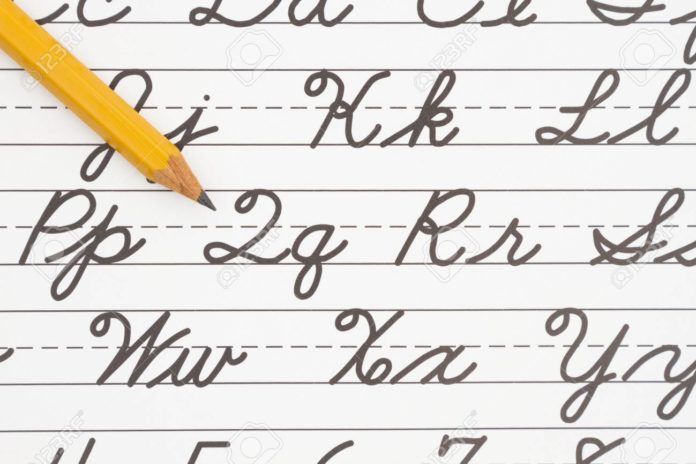I learned to write in Africa.
The school was taught in English, which is a more layered story of conquest and colonialism. By the time I got to Lusaka Infants’ School, it was the only language taught. At the top corner of my desk was a hole that held an inkwell. As we began to learn our letters, we learned how to use an ink pen. A dip pen, as in we dipped the nib of the pen in the ink, blotted it gently, and then wrote on the paper in front of us.
From our very first letter a, we wrote in ink. “Pencils,” my teacher said, “are for arithmetic.”
The message stayed consistent throughout my education in schools, both in Zambia and Kenya. You wrote in pen because you meant what you were putting on paper. If did not have to be perfect. If you made a mistake, put one line through it and then get back to business. Pencils were for equations where you had to show your work. Writing was done in ink.
When I began teaching in an American high school, I was incredulous that my students turned in essays in pencil. I handed them back and said to them what had been said unto me. Then it was their turn to respond in disbelief. I stood my ground, in part because I couldn’t read the penciled papers most of the time, but also because I wanted them to learn how to mean what they wrote, mistakes and all. To write in ink is to risk putting down something that can’t be erased.
Though they complied, I think most just thought I was a little bit crazy when it came to pencils. And I guess I am. I only write in ink. And I have a strange fondness for fountain pens. I guess I kind of wish I still had my desk, inkwell and all.
In one of her sermons, Ginger quoted Mother Teresa (and, it turns out, she really said this one) who said we were “God’s pencils.” For her, the metaphor had to do with God doing the writing and using her as the pencil—a broken pencil, in fact—that needed to be sharpened from time to time.
It’s a good image. But if I mix the pen and ink metaphors, I begin to wonder what to do with the idea that I am a pencil, even if it is God’s pencil, in a world where what matters is written down in ink. If I go along with my teacher’s instructions, as a pencil, I can be used to solve problems. I even can be used to erase mistakes, rather than crossing them out. Then there’s whole deal with being a No. 2 pencil rather than No. 1.
When I was learning to write, my teacher wasn’t concerned with metaphor. The pen was the instrument, I was the writer. I used a pen because ink meant I was serious. I meant it. She wasn’t talking about what we were trying to write. We were making letters. We were learning how to write down what we already knew how to say. What I learned was words matter. Words, whatever they are, have some permanence. They aren’t erased as easily as numbers. They are not merely equations; they are carriers of meaning. From the very first, I learned to write like I meant it, even though I didn’t know exactly what was happening to me as I dragged my pen across the paper.
But it stuck. I learned to love words. I don’t write in pen. I carry one with me—a ball point—at all times. The next level of my anachronistic life is I type full sentences in text messages (and tweets, until Trump cured me of Twitter) and I punctuate them. If I am going to write it down, I want to feel like I meant to write it down. I want to be God’s fountain pen. After all, in the beginning was the Word, not the algebra.
Here’s the other thing. I’m writing this on my MacBook. With autocorrect. My personal favorite is both my laptop and my phone correct sinner to dinner. That works for me. That will even preach. Writing with autocorrect gives me the illusion that I don’t have to worry about my mistakes. My computer will fix it, or will at least try to. If nothing else, it leaves a trail of words underlined in red to show me where I screwed up—without any permanent record, until I print it. In ink. (Or post it, you’re right.) But it is an illusion. Autocorrect won’t fix form when it should be from.
I think I have wondered far afield from whatever I thought I was going to say when I started this post. I suppose autocorrect doesn’t fix that either.
How about this: if I am the writing instrument, whether pen or pencil, I am going to leave a mark. When it comes to words made flesh, the marks we make on one another are not easily erased, regardless of intent or impact. I carry scars from those who have hurt me and I am indelibly marked by the love of others. We leave marks. We have to live with that.
Words matter. Actions matter. Mistakes matter. So does forgiveness. Everything matters.
Somebody write that down. In ink.
Peace,
Milton

I love this.
Another winning essay, Milton! A+
Milton, I love this one.